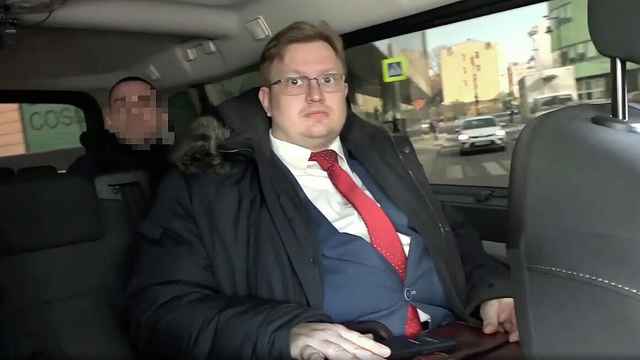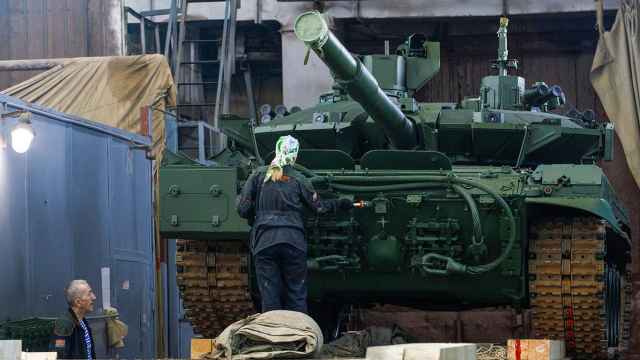BERLIN — The German economy's surprise second-quarter contraction was probably due to Russian sanctions and confidence being eroded by the Ukraine crisis as well as the comparison with a bumper first quarter, the finance ministry said Friday.
Europe's largest economy shrank by 0.2 percent between April and June after growing 0.7 percent in the first quarter thanks largely to an unusually mild winter, which boosted construction activity at the beginning of the year.
"The decline in gross domestic product goes beyond the expected counter-effect to the very strong weather-related performance in the previous quarter," the Finance Ministry said in its monthly report.
"This is likely to have been related to the effect of sanctions and negative effects on confidence due to the Ukraine crisis," it said.
After Moscow annexed Crimea in March, Western nations targeted Russian President Vladimir Putin's closest allies and businessmen with sanctions and in late July expanded them to include the energy, banking and defense sectors. Russia has reacted with restrictions on imports of Western products.
The Finance Ministry said the uncertainty over the Ukraine crisis was likely to have contributed to the dampening of industrial activity in the second quarter.
"If the Ukraine crisis does not escalate further and no further serious stages of sanctions are imposed, it is to be expected that the current economic slowdown is only temporary," the ministry said, noting that if this was the case, investment was likely to pick up in the remainder of the year.
It said "other geopolitical tensions" and "weaker economic development in the euro zone" had also contributed to the contraction, but the general economic trend remained positive.
The statistics office said last week that investment in construction and foreign trade had weighed on growth in the second quarter.
Rainer Sontowski, a German state secretary for economics, said on Wednesday that Berlin was sticking to its forecast that the German economy would grow by 1.8 percent this year even after its disappointing second quarter.
Two sources in Germany's ruling left-right coalition said the government was keeping a close eye on the economy's development but there no concerns about it as yet.
The Finance Ministry said exports, which have traditionally propelled growth in Germany but have struggled this year and last, were likely to develop modestly in the rest of the year as the global economy gradually recovers.
Despite the economic slump in the second quarter, tax revenues rose by 3.3 percent to 45.4 billion euros ($60.3 billion) in July compared with July last year as Germany's high employment level boosted income and sales tax revenues.
See also:
Russia Sanctions Jeopardize Europe's Economic Recovery
A Message from The Moscow Times:
Dear readers,
We are facing unprecedented challenges. Russia's Prosecutor General's Office has designated The Moscow Times as an "undesirable" organization, criminalizing our work and putting our staff at risk of prosecution. This follows our earlier unjust labeling as a "foreign agent."
These actions are direct attempts to silence independent journalism in Russia. The authorities claim our work "discredits the decisions of the Russian leadership." We see things differently: we strive to provide accurate, unbiased reporting on Russia.
We, the journalists of The Moscow Times, refuse to be silenced. But to continue our work, we need your help.
Your support, no matter how small, makes a world of difference. If you can, please support us monthly starting from just $2. It's quick to set up, and every contribution makes a significant impact.
By supporting The Moscow Times, you're defending open, independent journalism in the face of repression. Thank you for standing with us.
Remind me later.






